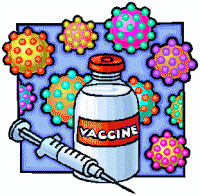 Nashville, TN – The Tennessee Department of Health is reminding those who travel abroad of the need for vaccination against measles.
Nashville, TN – The Tennessee Department of Health is reminding those who travel abroad of the need for vaccination against measles.
Although measles was officially eradicated from the United States in 2000, it is still present in other regions of the world including Western Europe and cases continue to occur among Americans returning from foreign travel and among foreign visitors to the United States.
Vaccination against measles is extremely effective.
“Our mission is to protect the health of Tennesseans, wherever they are. We don’t want people to let down their guard about diseases they may encounter in other parts of the world,” said TDH Commissioner John Dreyzehner, MD, MPH. “Anyone who is planning foreign travel should talk with his or her health care provider about immunizations to make sure to stay healthy.”The Centers for Disease Control and Prevention recently announced they have confirmed more cases of measles in the United States so far this year than in any year in the past 20 years. The cases and outbreaks are linked to disease acquired internationally and spread in this country among people who are not immune.
The Tennessee Department of Health recently identified the first case of measles in the state in three years. The patient is an adult with an uncertain immunization status who had recently traveled abroad. This patient is recovering at home after a brief hospitalization. People known to have had close contact with this patient have been notified, evaluated and vaccinated (where appropriate) to help protect their health.

Measles is a highly contagious viral disease that is preventable with vaccine. It causes a high fever, cough, runny nose and conjunctivitis or “pinkeye”, followed by a rash on the face that spreads down the body. Measles can cause serious complications like pneumonia, and is sometimes fatal.
The measles vaccine, as part of the measles-mumps-rubella or “MMR” vaccine, is routinely given to all children after their first birthday and again before Kindergarten.
Because the risk of complications or death from measles is highest among very young children, the CDC recommends infants aged six to 11 months receive one dose of MMR vaccine before traveling internationally; children aged 12 months and older should receive two doses separated by at least a month. Two doses of MMR vaccine will protect almost all people against measles for a lifetime.
International travelers of all ages should be up to date with their vaccinations. MMR vaccine is required to attend daycare or school in Tennessee, and immunization rates among children are very high. Adults born before 1957 are presumed to be immune because almost all had measles as children. Anyone unsure of their vaccination history should ask about getting a dose of MMR vaccine before traveling.
State and local health departments assist physicians in evaluating possible cases and, if a case is confirmed, public health staff members work to identify and notify people known to have had close contact with a case to be sure they have been immunized or to make sure they do not become ill.
Children and teens younger than age 19 who have TennCare as well as those who do not have health insurance can receive free vaccines through the federal Vaccines for Children Program in participating private medical offices and county health departments. Parents should ask their child’s health care provider if they participate in VFC.
If a child has insurance that does not pay for vaccines, local health departments and community health centers may provide the immunizations. Adults who are in need of protection against measles may also call their county health department to ask about vaccine.
To find more information about measles, visit www.cdc.gov/measles/ .
General information about vaccines is available online at www.cdc.gov/vaccines .
About the Tennessee Department of Health
The mission of the Tennessee Department of Health is to protect, promote and improve the health and prosperity of people in Tennessee. TDH has facilities in all 95 counties and provides direct services for more than one in five Tennesseans annually as well as indirect services for everyone in the state, including emergency response to health threats, licensure of health professionals, regulation of health care facilities and inspection of food service establishments.
Learn more about TDH services and programs at http://health.state.tn.us/ .


